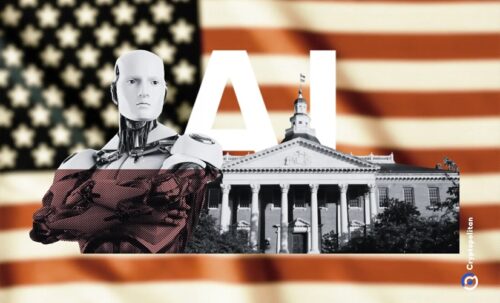
9.3.24 – GovTech -Dillon Mullan, Baltimore Sun
As artificial intelligence rushes to the mainstream, local governments and engineers have already found some efficiencies.
Still, due to questions about what the software ultimately does with the information that’s inputted, Maryland officials say they are approaching the emerging technology with extreme caution.
“As a government, we don’t beta test,” said Chris Martin, acting director of information and technology for Baltimore County. “We don’t put our constituents and our customers in that position where the technology changes course, and we’re not sure where it’s going. That is a headache in the long run.”
In January, Gov. Wes Moore issued an executive order that says artificial intelligence can be “a tremendous force for good,” while acknowledging potential privacy and data breaches. The order also created an artificial intelligence subcabinet chaired by Maryland Secretary of Information Technology Katie Savage and including other cabinet heads and department directors to oversee governance of the technology in the state.
From voting rolls to medical histories, Savage said she is concerned with protecting the state’s data.
“The most important element of this technology is the underlying data,” Savage said. “What rights do people have? Are we putting protections in place? What are the third-party terms and conditions?”
In March, Baltimore City Mayor Brandon Scott issued an executive order that requires the disclosure of the use of generative AI for any city government report, document or communication and prohibits uploading private information into an application such as ChatGPT.
“Disclosing information to an artificial intelligence tool, website or program constitutes releasing that information outside of the city agency,” Scott said in his executive order. City officials declined an interview request about the implementation of the executive order.
Dr. Kofi Nyarko, a professor in the Department of Electrical and Computer Engineering at Morgan State University, said AI is a buzzword for machine learning, which is not a new field of study, but just one that has been heavily invested in since Amazon’s Alexa came out in 2014.
“Traditional machine learning has been able to classify, this is spam or not spam, fraud or not fraud, but generative AI is giving you information back,” Nyarko said. “We haven’t quite learned how to make it as dependable and accurate as other forms of machine learning.”
Some of Nyarko’s graduate students engineered an airport wheelchair that could one day help make large public spaces more accessible by scanning tickets and rolling to the right gate.
Nyarko said governments, which house troves of personal data, must be cautious with the information artificial intelligence can collect. For example, he said, a camera tracking traffic patterns or school security could be mining other data without a government agency’s knowledge.
“They need to be worried. The public has put a certain amount of trust in the government,” Nyarko said. “The danger, I think, is the accessibility in tools like ChatGPT. It’s very easy for a government employee to think, ‘I can just shove some data in here to read some report or overview some course of action,’ but you are now sharing really sensitive information with open AI in a way the public didn’t agree to, so it is really, really tricky.”
Nyarko said he recommends storing data on internal servers instead of contracting out cloud space. Savage said the state manages “several” data centers that host government applications and a wireless network for state government agencies, and has contracts with Google and Microsoft for cloud storage and other web services. She said her department also guides procurement on any state information-technology contracts.
“Whether it is a pilot or full-blown procurement, there is that negotiation around third-party terms and conditions,” Savage said. “If it is a third-party where the application is stored on their own servers, we want to make sure the state’s data is protected.”
Jack Martin, chief information officer for Anne Arundel County, said he manages more than 200 buildings on a wireless network and emergency call systems. He said the county does not have its own data servers and contracts cloud services out of Northern Virginia.
Martin said the timing of generative AI is different from previous technological leaps, such as Google search.
“Companies don’t usually release beta software. They usually wait until it’s complete. Clearly, (AI) is not fully cooked. It has a ton of potential, but something that is different about this compared to the original release of Google is that we didn’t get the beta of Google,” Martin said.
Martin said that like Baltimore City, Anne Arundel County government agencies looking to use generative AI must register with his office and agree to surveys about how it is working. He said the technology has helped to summarize and classify 311 requests and to make feedback surveys, but an attempt to set up a database to help contractors figure out which permits they needed failed.
Nishant Shah, a senior adviser for AI in Savage’s office, said the state is also exploring how to use AI to shorten the turnaround time of permit applications.
Martin said the unpredictable outputs are still a red flag.
“Since the beginning of time you build software to have a completely predictable answer. When users perform a certain transaction, they are getting a very specific answer each time — that’s engineering” Martin said. “This is completely different than what we’re used to.”
